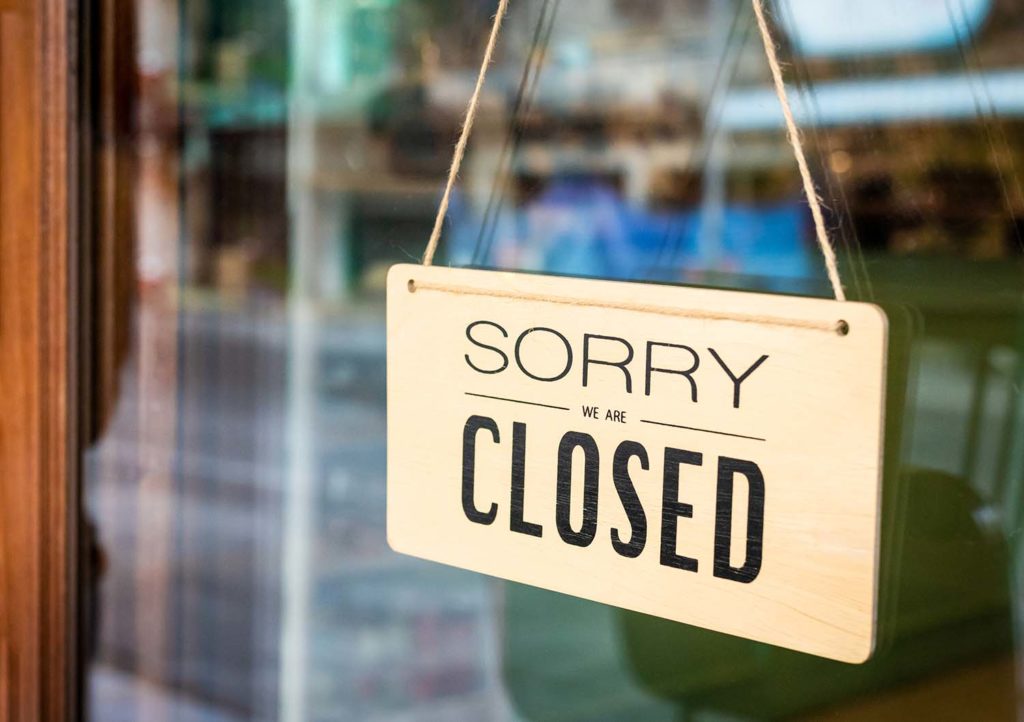News
Landlord/Tenant Considerations Amidst the Uncertainty of COVID-19

As the impacts of COVID-19 continue to escalate by the day, many U.S. businesses remain uncertain as to what everlasting effects with virus will bestow on them. In the realm of commercial real estate, landlords and tenants may find it hard to comply under their leases due to the effects of the rapid spread of and lack of concrete information about COVID-19.
As business are forced to shut down for significant periods of time due to governmental orders, the status of operations may become questionable, which could trickle down to ability of commercial tenants and landlords to perform under their leases. We suggest that landlords and tenants take the time to review their leases for provisions that may help afford an opportunity to alleviate the burdens arising from COVID-19. Though all leases are unique, we have identified some key issues that we believe landlords and tenants may face due to COVID-19.
Force Majeure
Force majeure provisions excuse or allow for a delay in performance of a duty or obligation in the event an unforeseeable circumstance arises. These clauses usually provide relief for non-performance arising out of an act of God, natural disaster, government action, strike, shortage in materials, or, the catch all provision, an event beyond the reasonable control of the parties. The issues the world is facing today have elicited government action requiring the closure of businesses for specific periods of time. Even without a specific pandemic force majeure event, there may be some relief afforded to a non-performing party if such non-performance is caused by governmental action, such as an order mandating a business closure, or even an event beyond the reasonable control of the parties. Please keep in mind a specific determination will depend on the specific language within the lease and the law of the jurisdiction that governs the lease.
In the event that a lease does not contain a force majeure provision, a non-performing party may be able to look to alterative theories for excuse of non-performance. Again, this will depend on the law applicable to the lease.
Withholding Rent
Tenants may find themselves struggling to pay rent due to business interruption. It unlikely that a lease will allow for the non-payment of rent in any event. In fact, some leases may even specifically provide that its force majeure provision does not apply to the tenant’s obligation to pay rent. If a tenant finds itself in a situation where it is unable to meet the rental obligations under its lease, it is advisable establishing an open line of communication with the landlord in an attempt to lessen any conflict that may arise. We also recommend that both tenants and landlords review their business interruption insurance policies as further addressed below.
Business Interruption Insurance
It is important for landlords to consider how the closure of a business that is renting space will affect the property’s profitability. If a tenant is forced to shut down its operations, this could trickle down to the landlord’s ability to meet its independent obligations, such as making loan payments. Because of these risks, some leases require that the parties, or at the very least the tenant, maintain business interruption insurance.
Business interruption insurance provides financially stability for the insured party in the event of a disruption in business. Unfortunately, this type of insurance generally applies only to disruptions that are caused by the physical condition of the property. If you currently maintain business interruption insurance, we advise that you take the time to review your policy to determine covered and excluded perils.
Operating Covenants
Commercial leases often contain operating covenants, which require a tenant to maintain continuous operations throughout the term if the lease. A breach of this covenant may be triggered, although unintentional, if a tenant is required to close its doors in the wake of COVID-19. Commercial leases also generally include a provision requiring the tenant to comply with applicable laws. Assuming a governmental order would be considered a “law”, these two provisions seem to conflict, and the appropriate court may need to be involved to determine the if the obligation to comply with the law prevails over the operating covenants.
Landlord Considerations
Many commercial properties contain common area for the enjoyment of all tenants (i.e. pools, gyms, food court). Landlords should follow cleaning and disinfecting guidelines issued by the Center for Disease Control and World Health Organization when evaluating how best to protect the health and safety of tenants and their invitees, keeping in mind that there may be a limitation on the restrictions that a landlord may impose on a tenant’s right to use common areas. As a best practice, landlords should also consider educating and informing tenants on COVID-19 as more information because available to the public.
Landlords and tenants should begin engaging in detailed communication regarding the effects of COVID-19, if they haven’t already begun doing so. Parties to commercial leases should also perform a careful review of the lease and any insurance documents for provisions that could trigger a breach, as well as those that offer relief. Our firm is here to assist you in navigating these uncertain times. Please contact us for additional assistance and information with respect the effects of COVID-19.
Luke Markham – LukeM@jpfirm.com
Kaley Witeck – KaleyW@jpfirm.com

